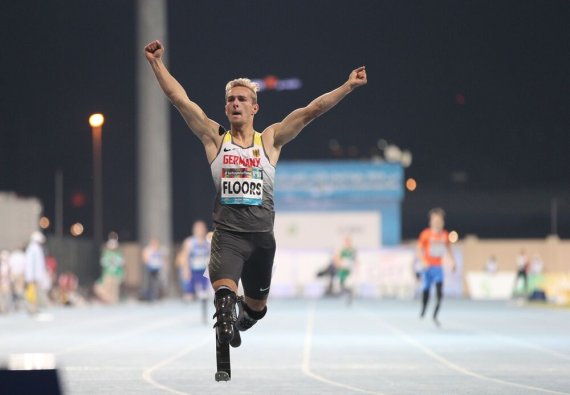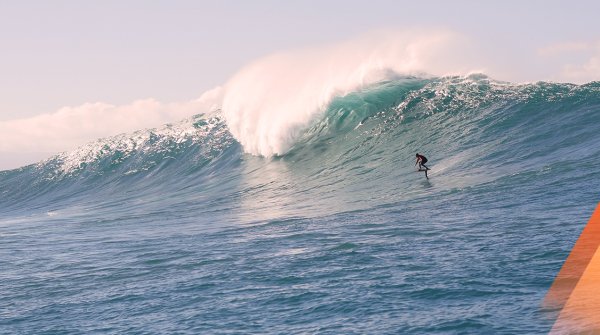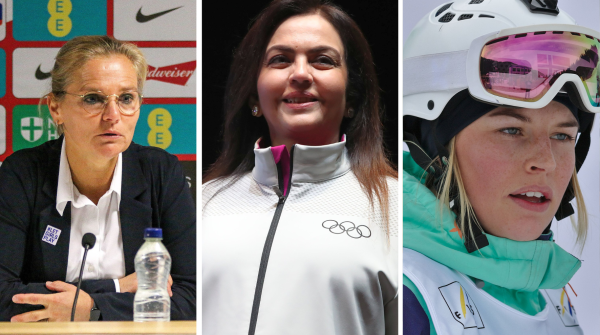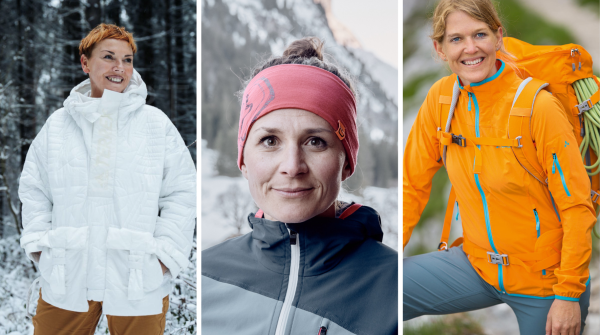
ISPO.com: You broke your own world record in the sprint over 400 meters at the World Para Athletics Championships 2019 in Dubai. How did that run feel?
Johannes Floors: The run was simply gigantic. It was so good, I can't remember it anymore. It was a fulfilment of all the hard training of the last years. I improved my best time by one second, broke my own world record and set a new one. And what also makes me a bit proud is the fact that no German was so fast that year - with or without legs.
You were born with a genetic defect that leads to a deformation of the feet and calves. At the age of 16 you decided to have your lower legs amputated. How hard did you find the decision?
The situation I had then was no longer tenable. I couldn't take gym class anymore and I couldn't go on school trips. If I had to stand, 10 minutes was the limit. I have discussed what other options are available with my parents and my surgeon. And one was to amputate - to remove the body part that causes the pain.
What was it like to wake up after surgery?
I woke up and looked at the end of the bed. There was always a bump in the blanket where the feet were - and it wasn't there. I was really happy about it. For me, it was not a body part that brought me forward, but that caused pain. That's when I knew it was the right decision.
What does it mean to you to be able to walk with prostheses now?
I couldn't walk for 16 years. Being able to walk after the operation was something new for me. The first steps were totally liberating. They developed into something I like to describe as flying, because this freedom and this speed came together in the race.

Their World Cup victories have also made it into the news. It is relatively new that disabled sports are reported in the general media. How has the view of this changed in recent years?
In general, we are getting more attention and interest is increasing. This gives us the opportunity to market our sport more and also to show what we are capable of. No matter what kind of handicap they have: small children, arm amputations, spasticity, the visually impaired, wheelchair users, all of whom perform fantastic feats.
Do you see it as your responsibility to be an example for other people?
Absolutely. On the one hand, I show that with hard training, a lot is possible despite the disability. And on the other hand, that you must not be intimidated, no matter what the limitations. We disabled people are not different and we do not want to be perceived differently. We are part of this society like everyone else and therefore do not need to be treated separately.
You are often described as the „new blade runner“. How do you feel about the term?
The title is given to me by others. It goes back to the South African sprinter Oscar Pistorius, of course. That is honourable in itself, but it also means following his footprints. I want to go my own way. And I'm confident that I'll outrun Oscar at some point.
Do people look at a malformation differently than at a prosthesis?
I had experienced the phase with the malformation during my puberty. And children are honest as hell and often also mean. A lot has changed with the prosthesis. In the meantime prostheses have become a fashionable accessory. Whereas in the past they had to be skin-coloured and shaped like a leg, today they are worn completely made of carbon, black as they are. I've seen some of them before, I've stuck brilliant-stones on them, painted them, water transfer printing, airbrush, all kinds of things. They've gone cool. In fact, children of acquaintances go so far as to think that prostheses are things that look great and that you can run faster with - because they don't know any better. Then they'll want one too. No child will want a malformation.
You are in a position where You can easily keep up with non-handicapped athletes or even beat them. Do you still see your amputated feet as a handicap at all?
I was more handicapped with the malformation, than I am now. Therefore I do not see my missing lower legs as a limitation. I cannot move my ankles, but I have a carbon spring foot that compensates for all this. I have a sports prosthesis that replaces everything that is missing. Compared to the situation before the amputation, this is a definitive empowerment and a huge step forward. That's why I say it was the best decision I ever made.
Does it still make any sense to call you disabled?
I often say that I have no more than two scratches. In Paralympic sports, two transtibial prostheses are basically nothing. If I wear pants, you can't even tell I'm wearing dentures. Basically, I can do anything.
Do you nevertheless sometimes envy people who have two full legs?
No, not really. But there are two things that I would like to see again. On the one hand, to dangle your feet from the jetty into the water and on the other hand to bury your toes in the sand. But these are small things that would not have been worth not doing the amputation.
What other sporting goals do you have?
My goal is clearly to win a gold medal at the Paralympic Games and to even run faster again.
- Awards
- Mountain sports
- Bike
- Fitness
- Health
- ISPO Munich
- Running
- Brands
- Sustainability
- Olympia
- OutDoor
- Promotion
- Sports Business
- Textrends
- Triathlon
- Water sports
- Winter sports
- eSports
- SportsTech
- OutDoor by ISPO
- Heroes
- Transformation
- Sport Fashion
- Urban Culture
- Challenges of a CEO
- Trade fairs
- Sports
- Find the Balance
- Product reviews
- Newsletter Exclusive Area
- Magazine





